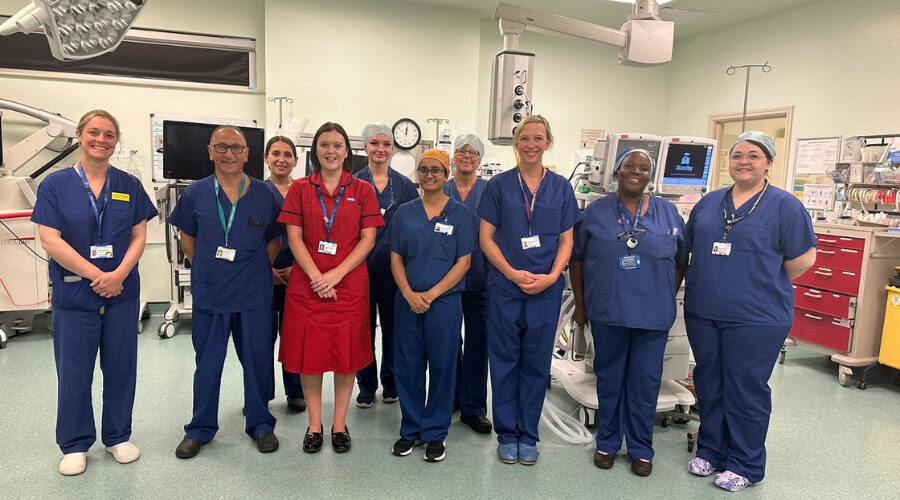
Spotlight
Additional hysterectomy option now available as a day surgery
It’s another first for our day surgery centre at Musgrove Park, with patients now able to go home on the same day following a vaginal hysterectomy.
This type of hysterectomy provides relief from the distressing symptoms of pelvic organ prolapse. It comes just weeks after surgeons performed Musgrove’s first ever laparoscopic hysterectomy – more commonly known as keyhole surgery – as a day case procedure.
Prior to these developments, patients would have stayed an average of two to three days in hospital, which could affect their recovery time as we know people are more likely to recovery quicker in the comfort of their own home.
It’s the latest example of how we're innovating and doing things differently to improve patients’ care and experience in Somerset.
By helping patients to avoid a stay in hospital, their overall recovery and return to full fitness is greatly improved, and there is a reduction in the potential complications associated with an inpatient stay, such as hospital-acquired infection, thrombosis and loss of independence and muscle strength.
Gemma Briggs, one of our theatres matrons, said it was great news that patients are now able to access even more hysterectomy options as a day case procedure.
“Our surgeons really are pushing the boundaries in the type of procedures that can be done as a day case,” she said.
“We’re pleased to now be able to offer both vaginal and laparoscopic hysterectomies without the need for an overnight stay.”
Mr Hadi Haerizadeh, our clinical director for obstetrics and gynaecology, added: “For some of our patients, having a hysterectomy as a day case procedure has a whole host of benefits, such as being able to get back up and about quicker with less time needed to recover. They’re also likely to need less pain relief, and it helps us to reduce waiting times.
“A day case procedure also helps us to free up inpatient beds at the hospital, reducing the burden on highly skilled colleagues who provide cover out-of-hours, and minimises the risks of hospital acquired infection and venous thromboembolism.”
Gemma continued: “We know waiting times for most surgeries increased during the pandemic, which has led to huge pressures on our services over the last few years, so this sort of initiative greatly helps us to both reduce waiting lists, and make it a better all-round experience for our patients.
“We would like to thank everyone in our gynaecology team for the excellent work they’ve done to develop this type of innovation, which will have so many benefits for our patients – it has been a truly collaborative multidisciplinary effort.”

